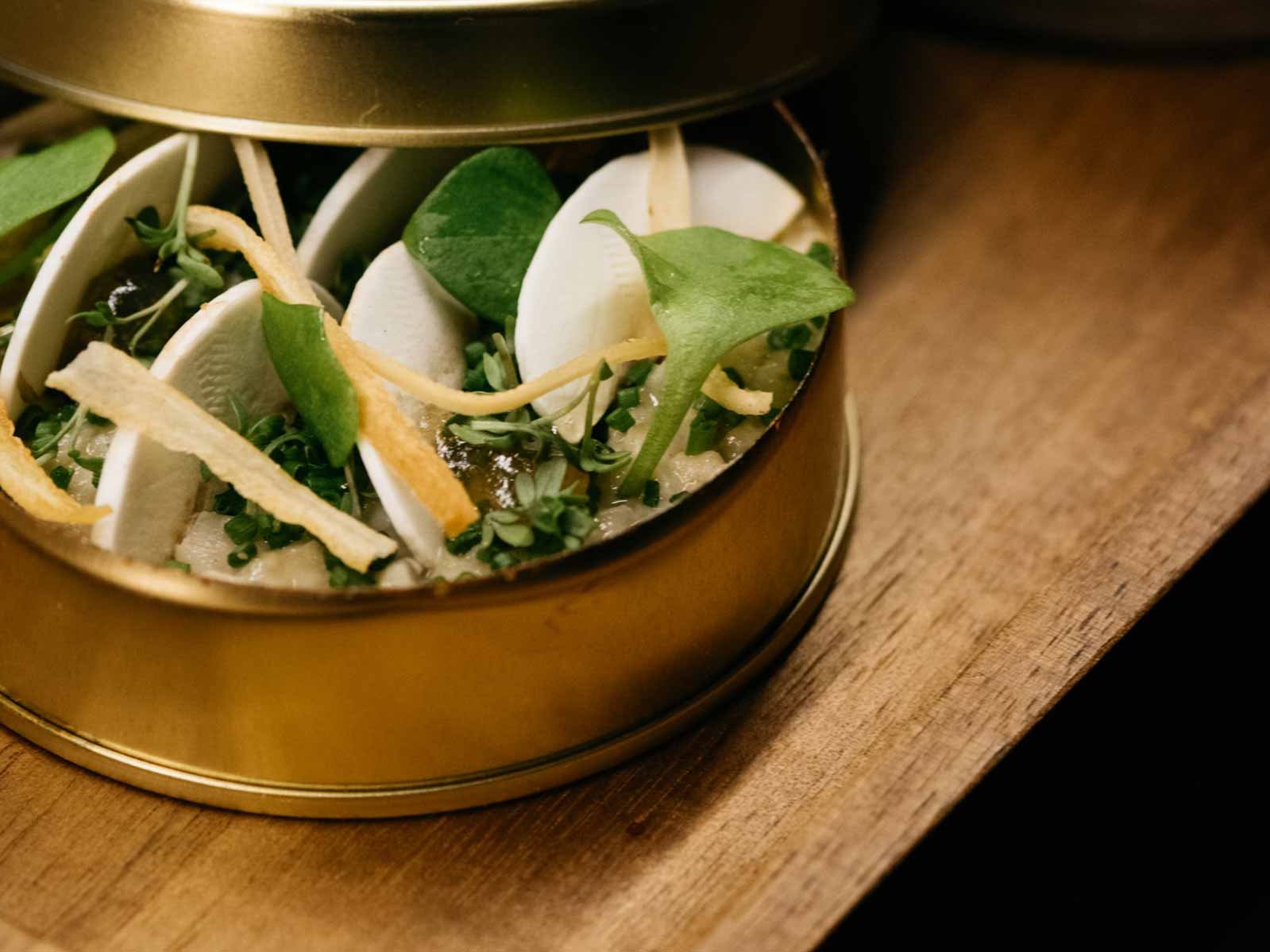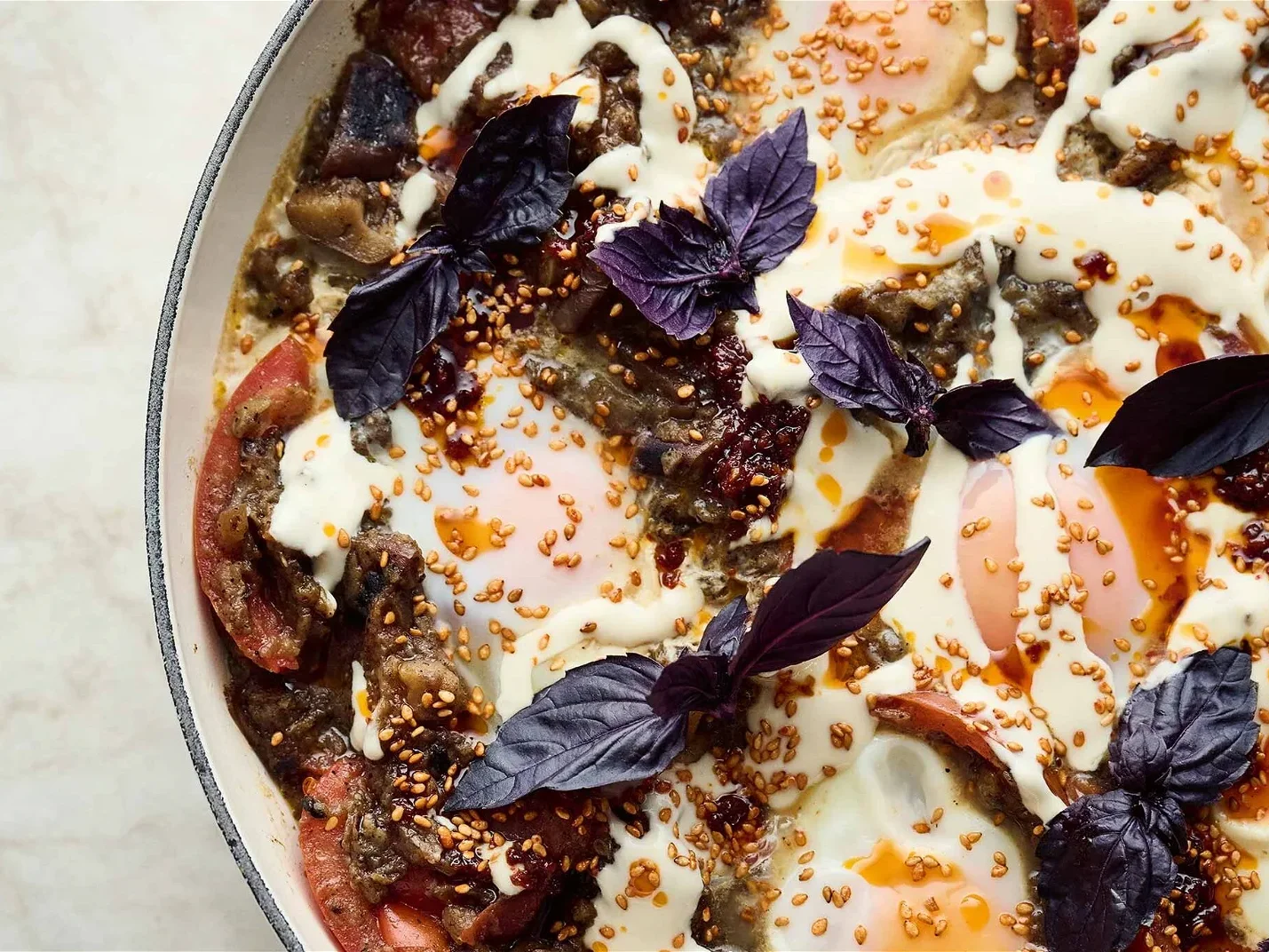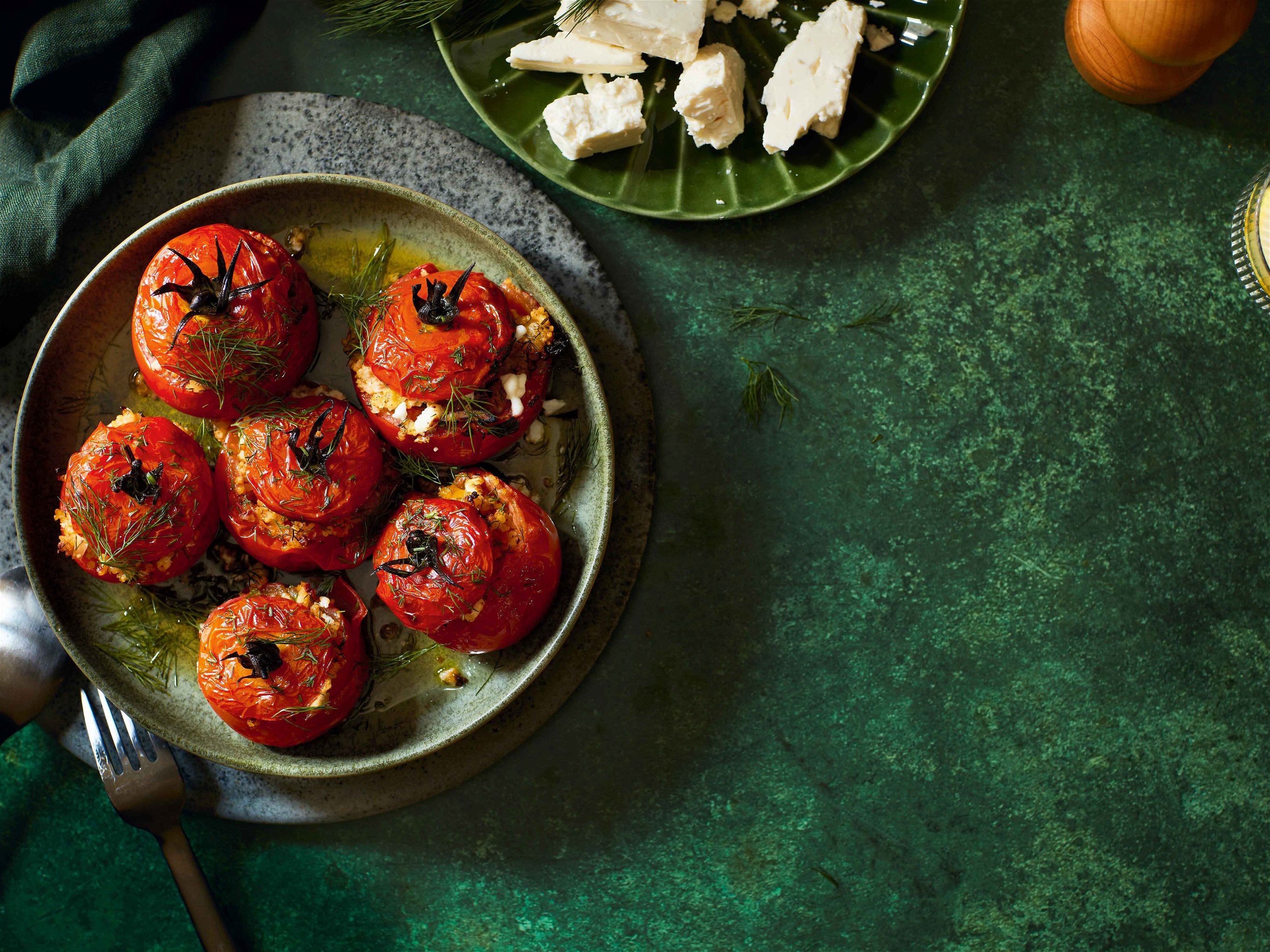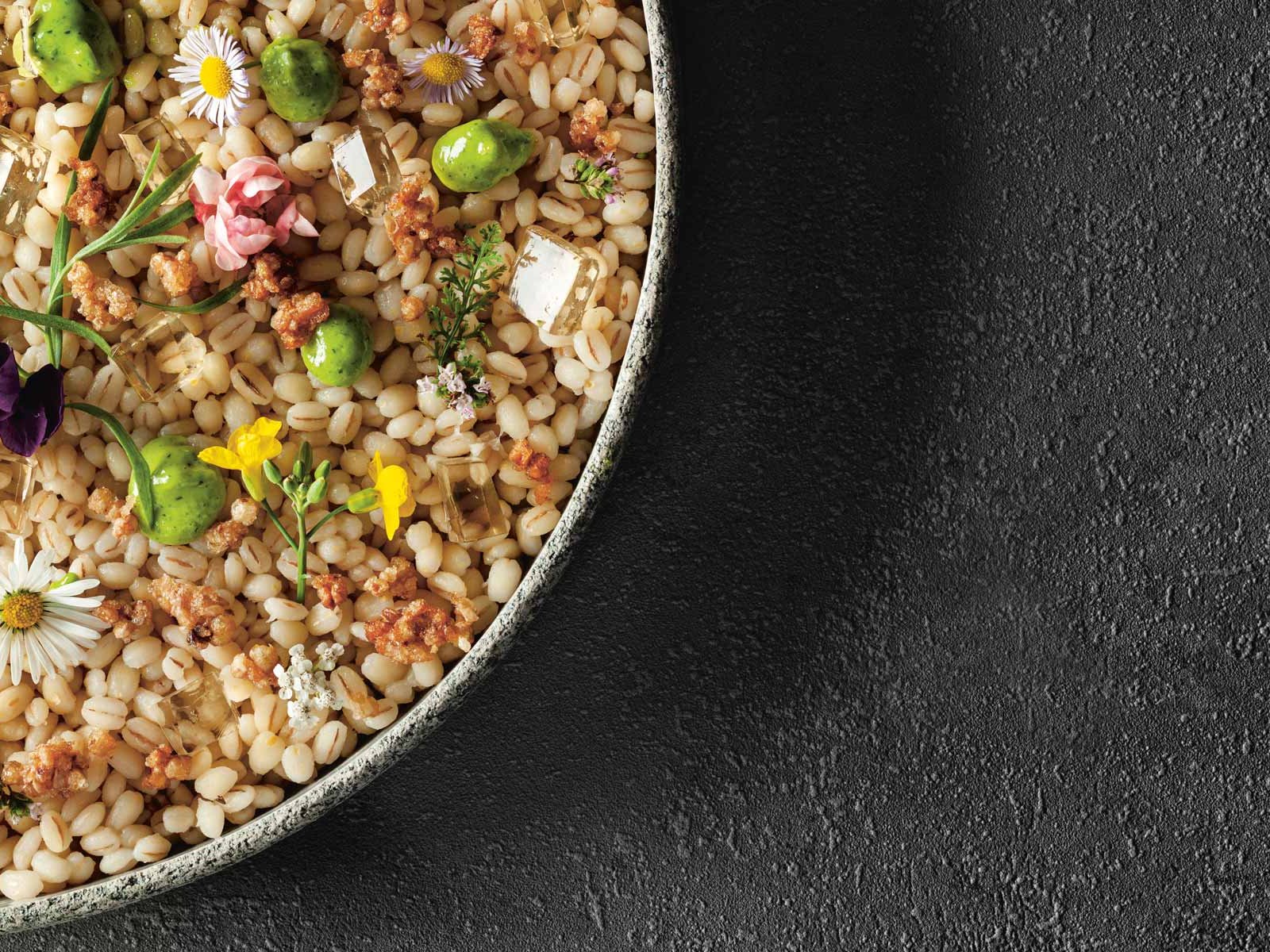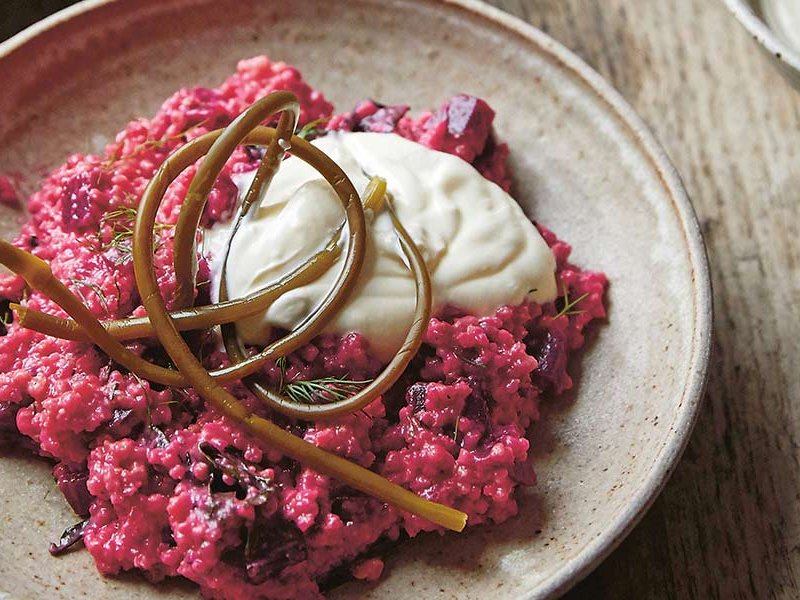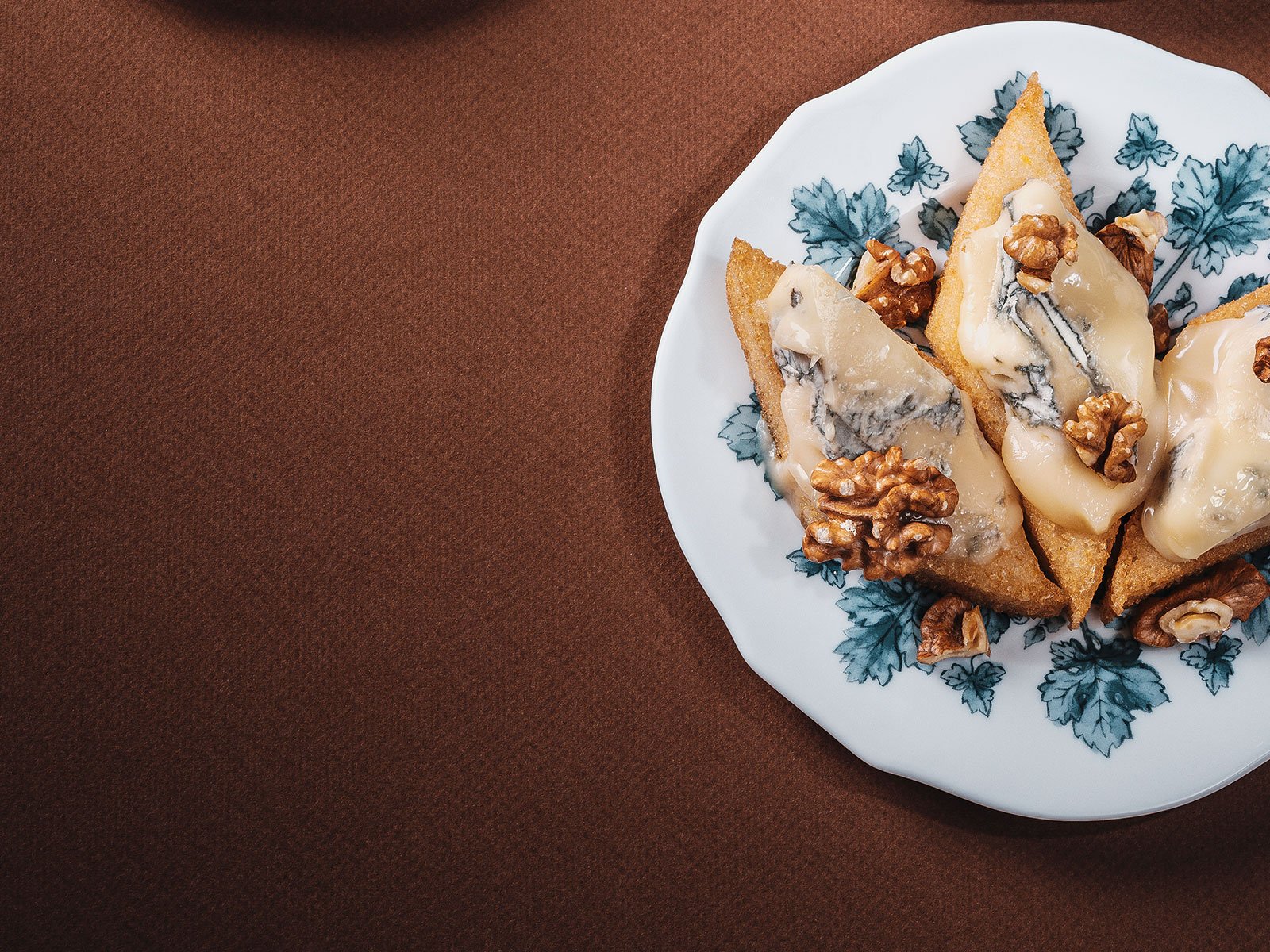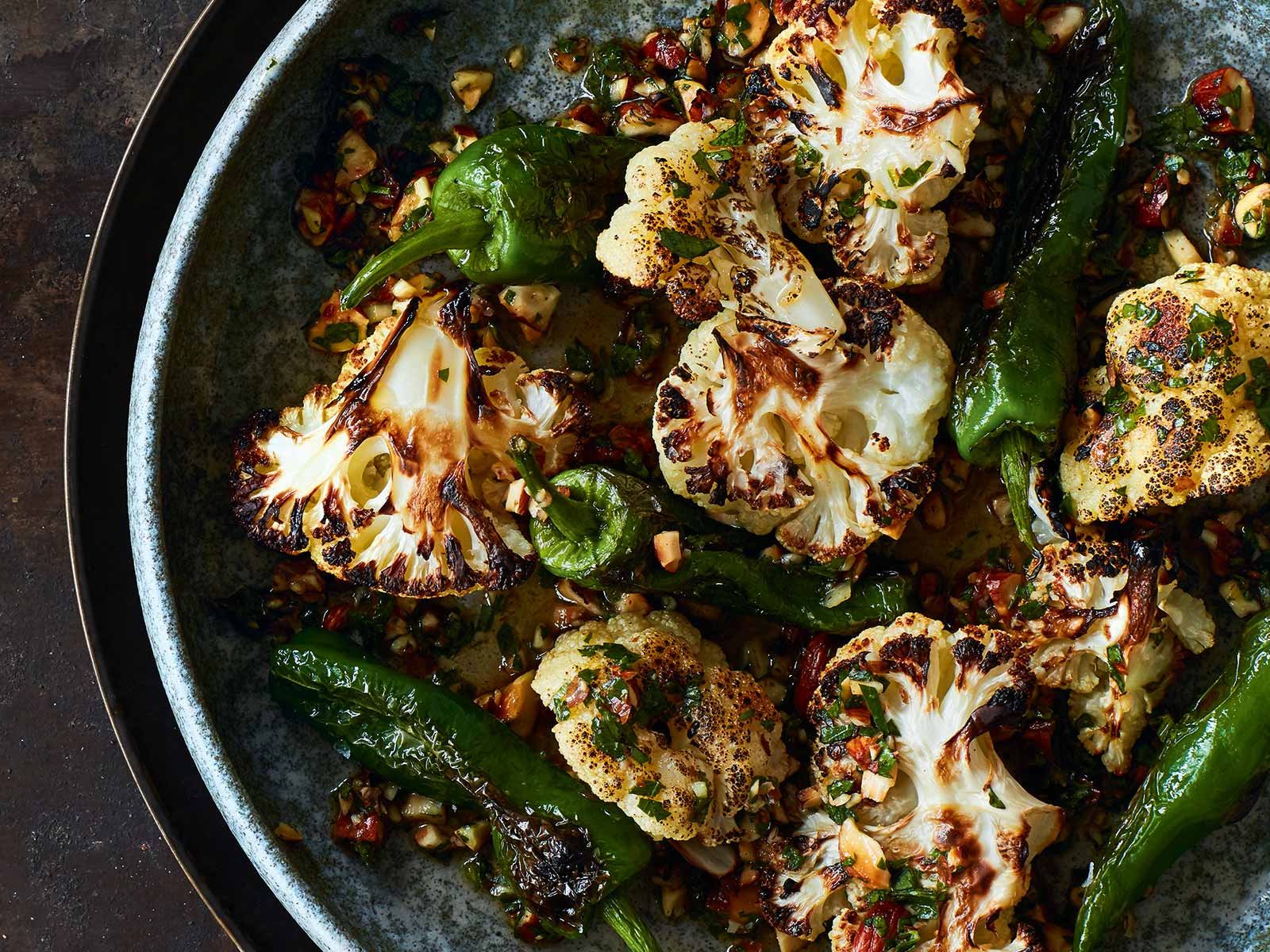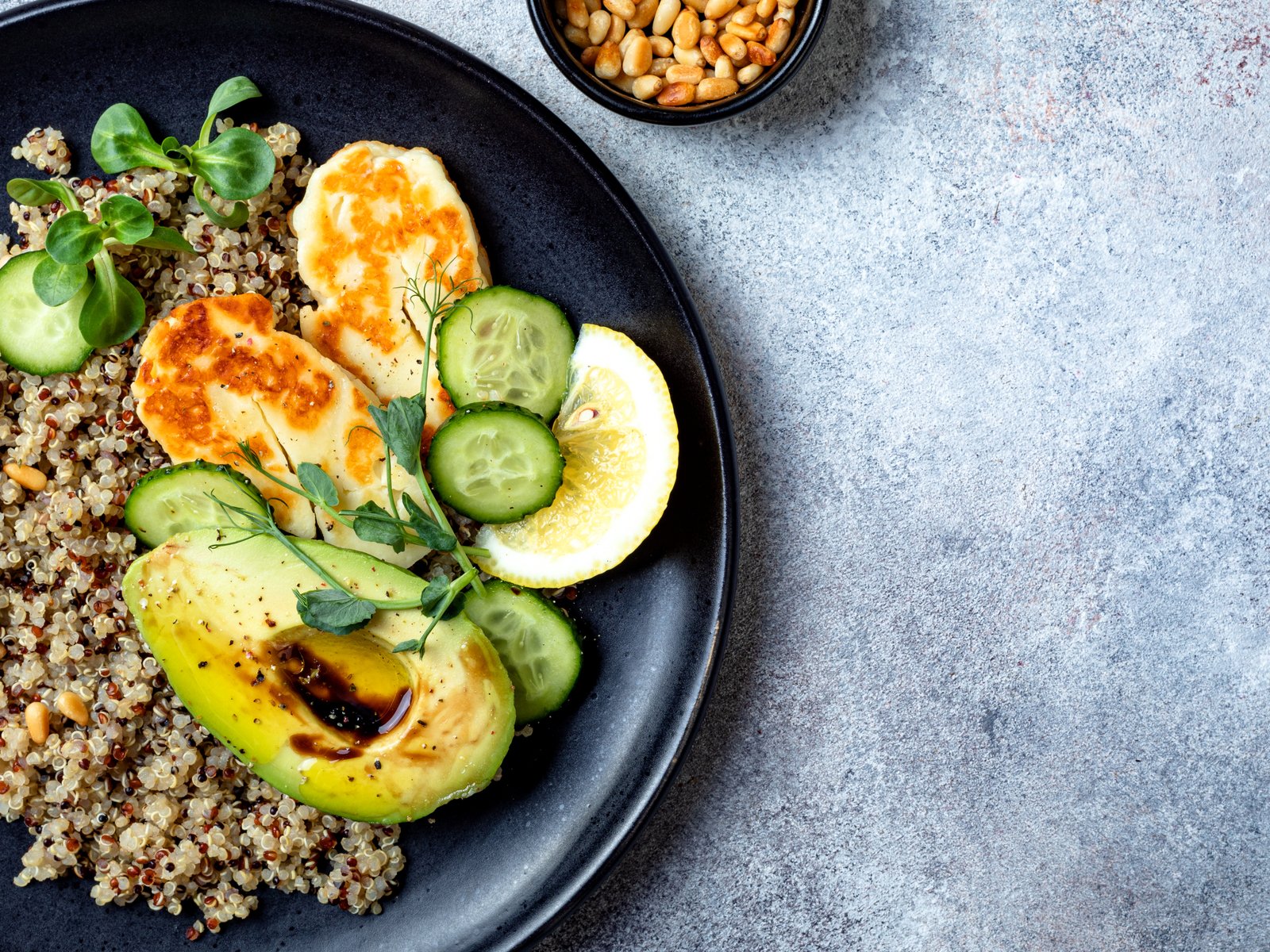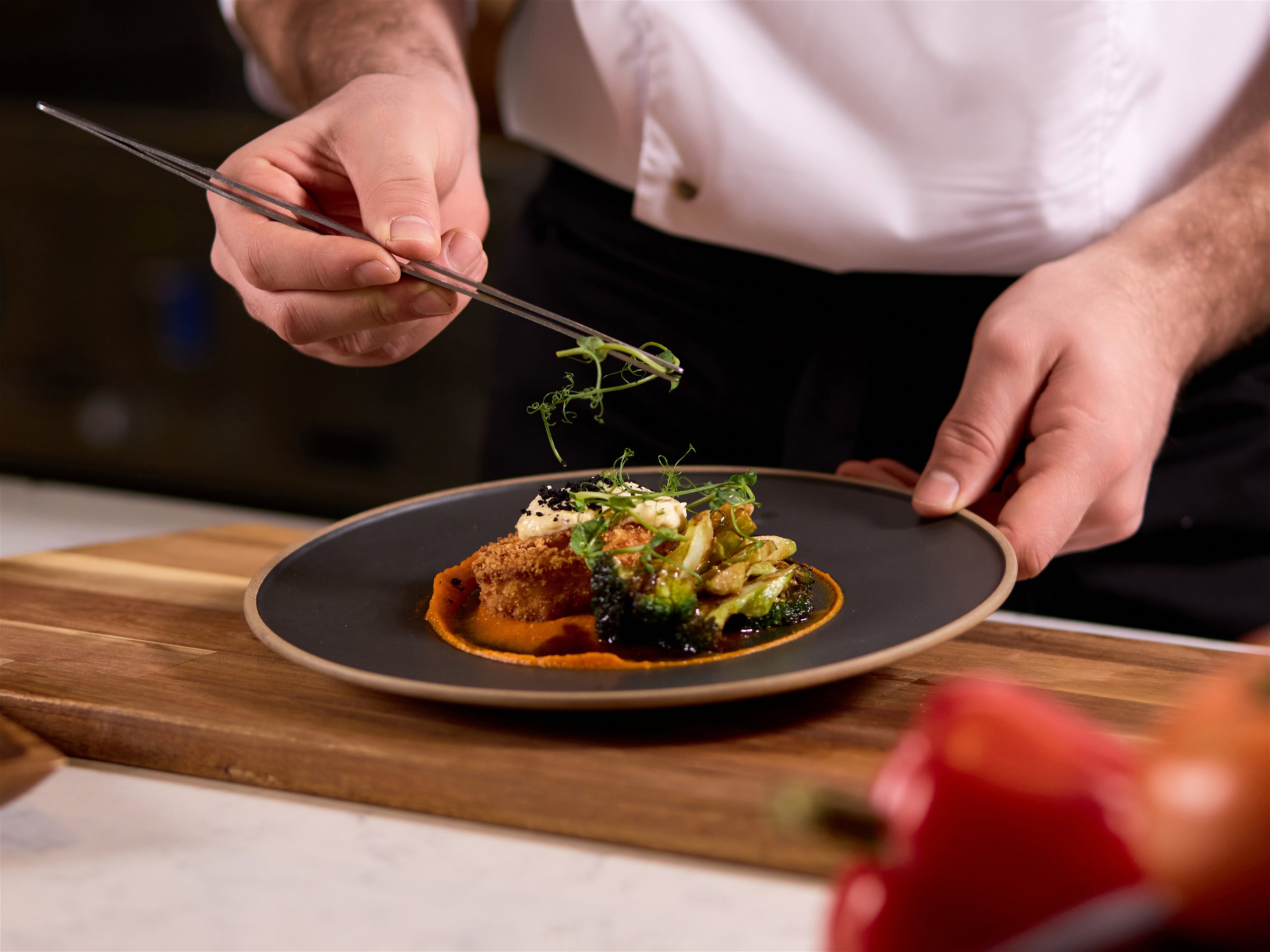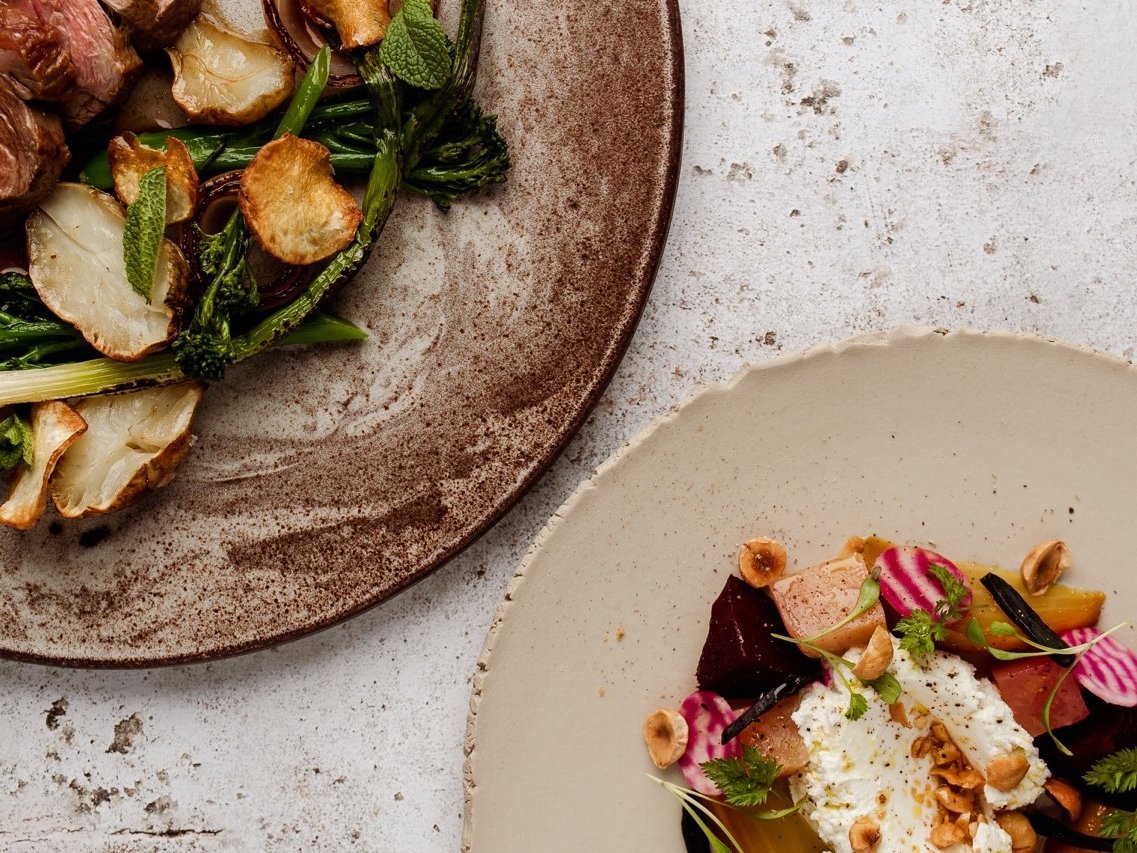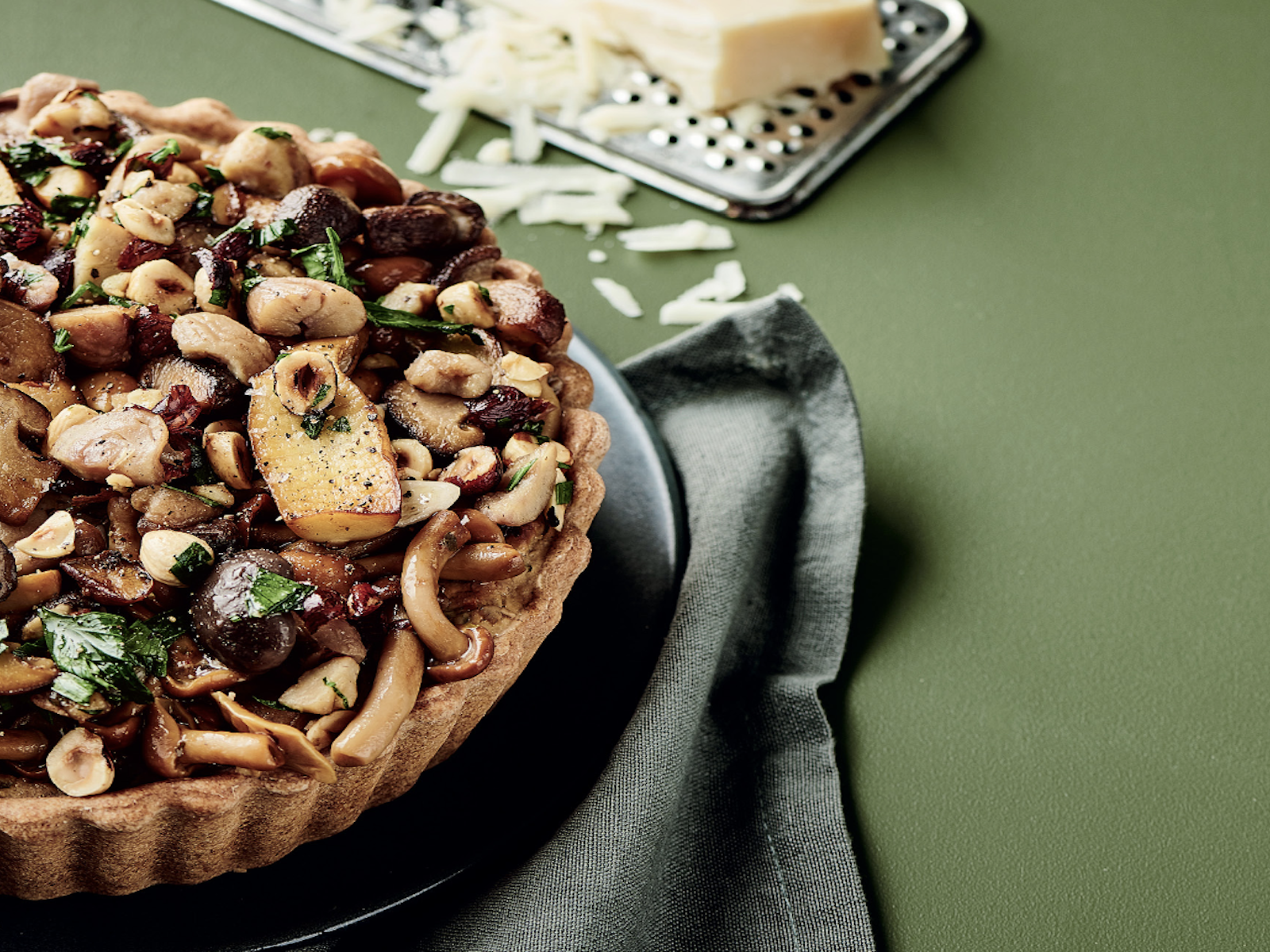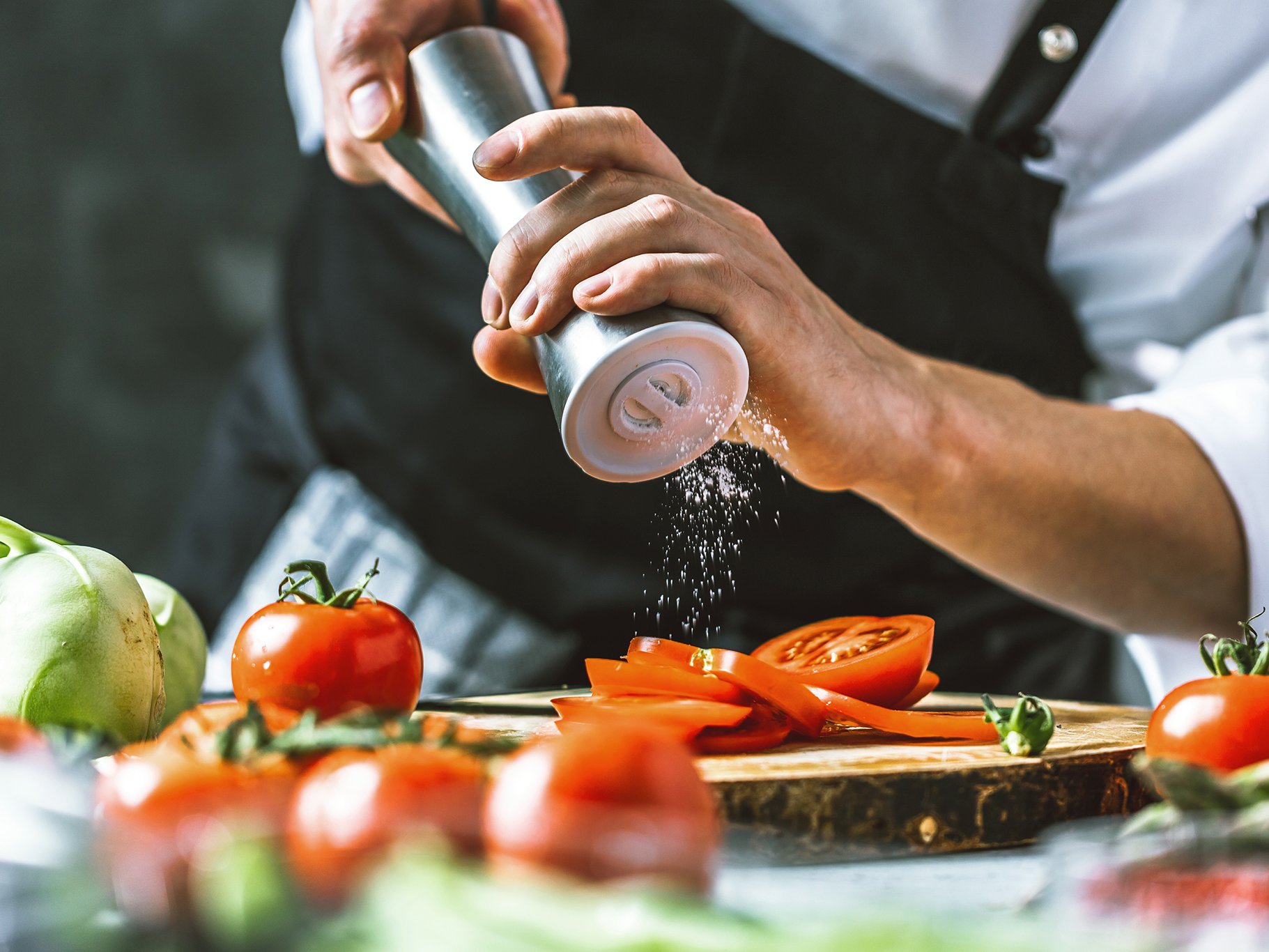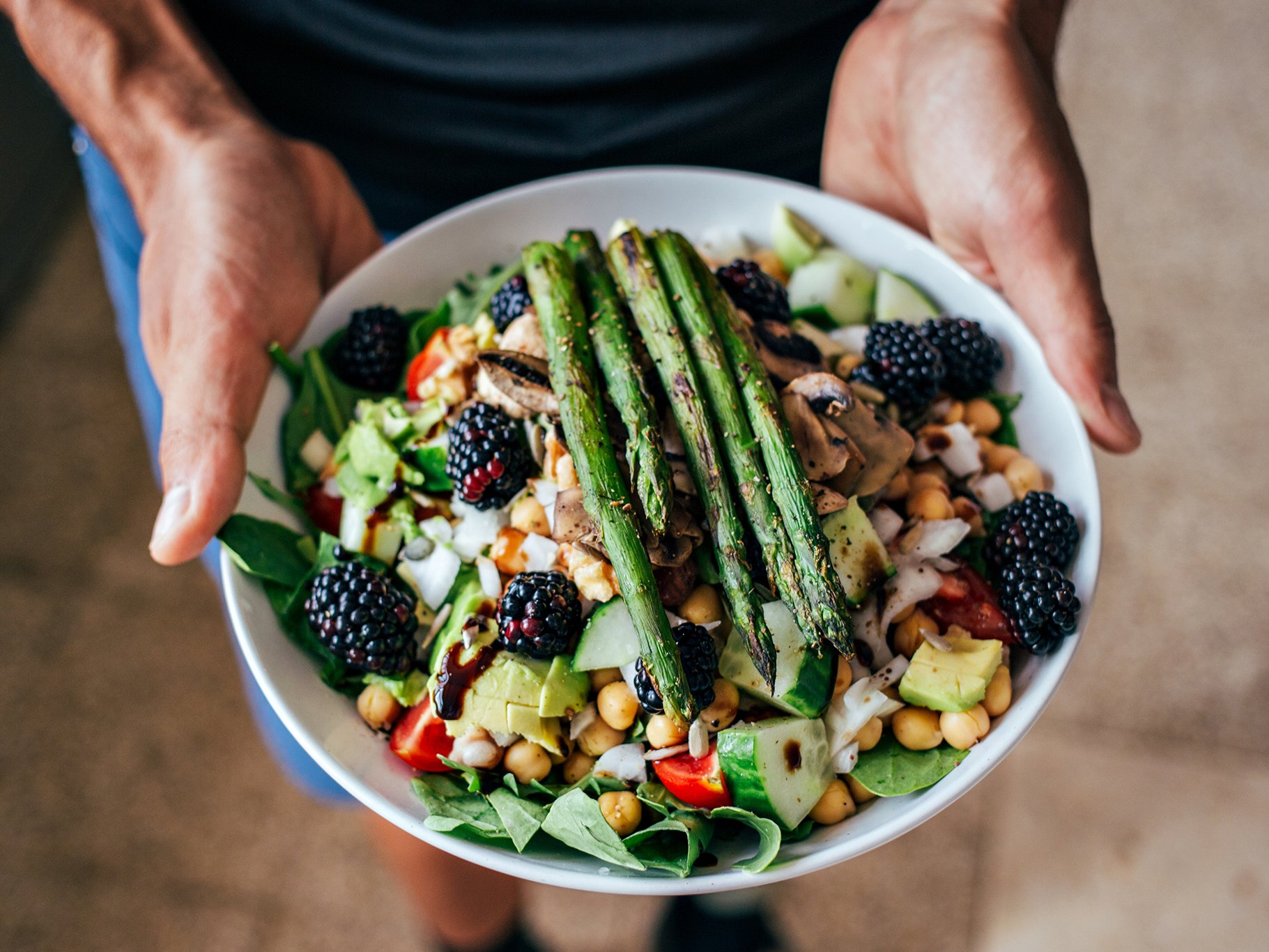The New Veggie Boom
Those who permanently or partially forego animal products celebrate nutrition as a lifestyle, and thanks to creative chefs, they can still feast at the highest level.
For a long time, vegetarians and vegans had a hard time within our social fabric. "Let's get started or the food will wilt." "Please don't make jokes about tofu, it's tasteless." "Was becoming a vegetarian a missed steak?!" ... The list of lame jokes about meatless diets goes on and on. Those who partially or completely renounce animal products were - at least in secret - ridiculed, even pitied, by meat eaters.
But the mockery has become quieter. Jokes about green spelt patties and tofu sausages no longer cut the mustard, because alternatives to meat not only look contemporary, they taste really good. A well-made bolognese made from cauliflower or tofu often makes an impression on carnivores. Anyone who brings a patty from the Californian meat substitute producer Beyond Meat to a barbecue can look forward to amazed looks and interested enquiries and even seasoned beef fans often can't tell the difference between a Black Angus and a pea patty in a blind taste test.
Alternatives to animal products have improved enormously and a huge market is now emerging; the consulting firm Boston Consulting Group estimates the potential for meat alternatives at US$290 billion by 2035. By then, there should be a realistic meat-free alternative for nine out of ten of the world's most popular meals. Already they can see where the journey is heading, Beyond Meat had a turnover of over US$400 million in 2020, and when the oat drink manufacturer Oatly priced its IPO (Initial Public Offering) at US$17 per share, it implied the company was worth US$10 billion. And it's not just the US, for the first time German sausage manufacturer Rügenwalder earned more money with non meat alternatives than with liver pates and salamis combined for the 2020 financial year. Everywhere you look meat is losing market share.
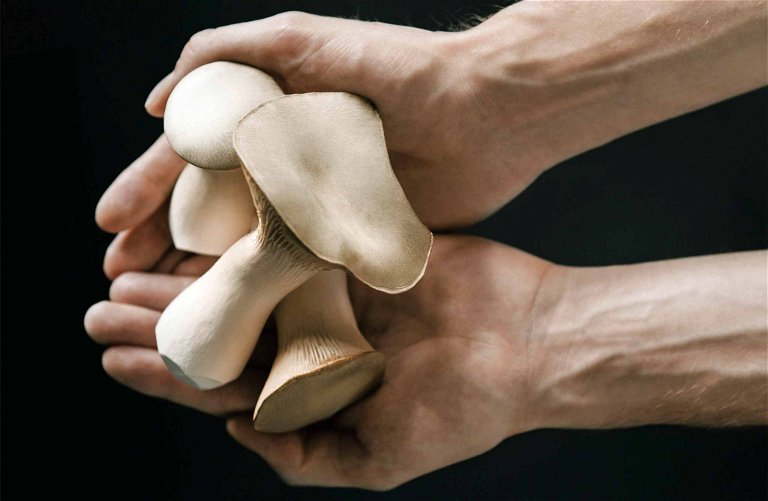
Haute cuisine as a pioneer
In haute cuisine, vegetables have been the star on plates for a long time, but the trend towards meat-free dining has only really taken off in the last few years. In 2019, there were only four starred meat-free restaurants in the world; today there are ten. The same year, the American celebrity chef Dominique Crenn announced she would forego meat in all of her group's restaurants. It was also the year that the first vegan restaurant in Europe received a star - Seven Swans in Frankfurt on the Main, the motherland of German high cuisine. In February this year the Michelin Guide followed suit issuing vegan restaurant ONA in Arès with its first star.
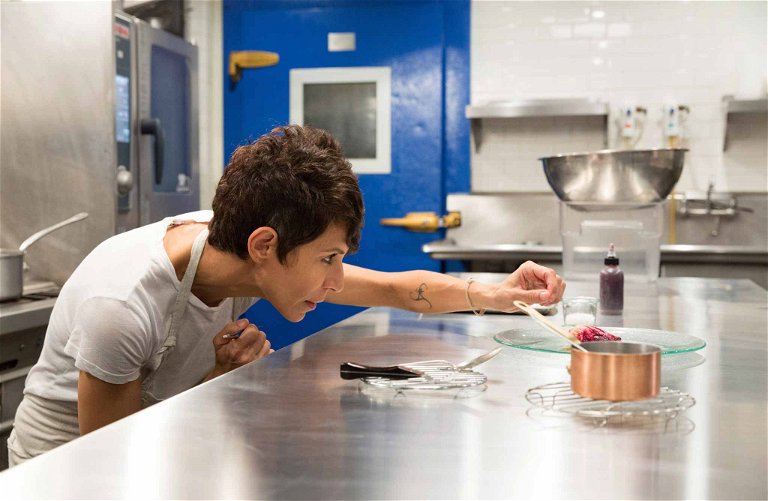
However, the most impressive proof of the current fine-dining upheaval that is underway was provided in May by New York's best-known chef, Swiss-born Daniel Humm. In an exclusive interview with the Wall Street Journal, he announced that his three-star restaurant, Eleven Madison Park, would in future only offer a plant based menu. The treatment of animals and the ocean is simply not sustainable, Humm explained his decision. "If we are really at the forefront of culinary innovation with Eleven Madison Park, then this step is the only one possible, that is crystal clear to me," he said in a statement.
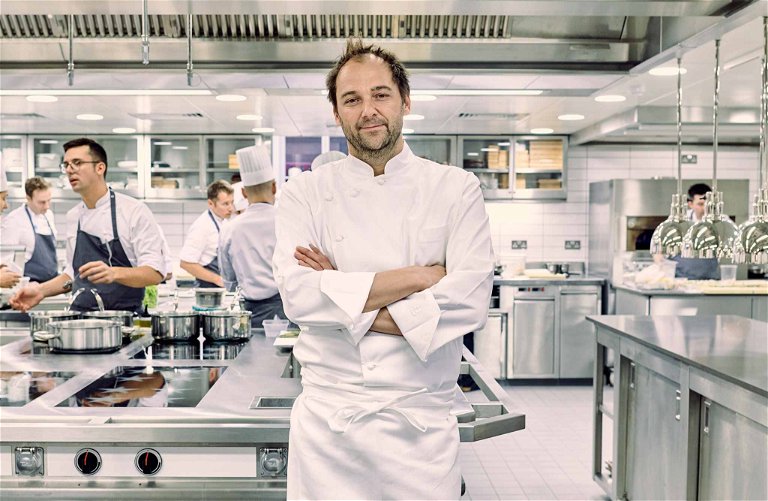
Flexitarians are en vogue
It is a new perspective that is the decisive factor in driving these changes. Those who renounce meat today are no longer seen as pleasure-free ecologists, but mindful pioneers. For decades, the debate on vegetarianism was conducted with almost religious fervour. Ideologies clashed, it was more about political views than taste. In the meantime, many gourmets have discovered that giving up fish and meat does not necessarily mean less enjoyment. And who says you have to commit to all time? The neologism flexitarian marks the attitude of abstaining from meat most, but not all of the time.
What one eats, how one eats, has become a question of lifestyle in wealthy Western societies, even social media feeds us 'food porn' - glamorous, enticing images and adverts for food. "Eating is the new pop" said German newspaper Die Zeit in 2016. "You are what you eat" is roughly how the Frenchman and grandfather of all gourmets, Jean Anthelme Brillat-Savarin, put it well over 250 years ago. But in view of social and global developments, the statement has perhaps never been as true as it is now. After all, back then there were no debates about climate change nor animal welfare.
Today, the share of animal husbandry in global emissions of climate-damaging gases has been calculated to be only slightly less than car traffic (about 15% of global emissions). Sustainability has become a new trend, not just in food, but in the world of fashion, house building and transport. Those who voluntarily do without, be it a powerful petrol engine or daily meat, show that they care about the environment and in doing so, are happy to stand out from the rest.
"My guests are extremely wealthy and highly educated, they are much more conscious about nutrition," says Thomas Imbusch, owner and chef of star-awarded restaurant 100/200 in Hamburg. Every year in the summer months he only offers a meat free menu, "because nature offers so abundantly that no animal has to be slaughtered for us." Needless to say his tables are fully booked even though about two-thirds of these diners would usually eat meat.
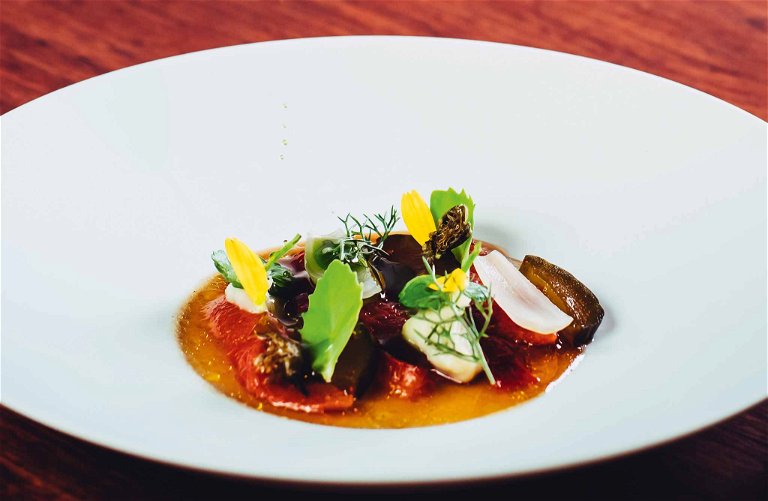
Meat consumption has been stagnating for years, if anything there is something of a downward trend. While prosperity used to mean being able to afford meat for dinner, today other status symbols have come to the fore. "There is an opportunity to break out of the classic pattern," says Björn Witte, CEO of the Swiss investment firm Blue Horizon, which specialises in alternatives to animal products. He speaks of a "perfect storm" that is driving the boom of Beyond Meat, Impossible Foods and other protein alternatives. He sees the corona virus pandemic as the most recent building block for their success, as it has led many people to take a closer look at their diet.
Gastronomy just below star cuisine is now also responding to the growing demand for meat-free food. No longer are salads, pasta and risotto dishes listed setarately in a vegetarian section on the menu and, luckily, the days are over when vegetarians were fobbed off with side dishes such as potato gratin or overcooked vegetables. Instead, chefs are becoming bolder and more ambitious with Asian influences playing just as much a part as the trend towards regional ingredients.
As so often, the pioneers were the chefs of New Nordic Cuisine, above all René Redzepi, who made his name at Noma. Redzepi set new standards using scientific methods and his own laboratory to push the boundaries of what could previously be cooked. Redzepi laid many foundations, but his fascination was with fermentation - he even published a book about it with the director of his laboratory, David Zilber (The Noma Fermentation Manual). His legendary kebab made from celery and truffle, looked and tasted deceptively like its meaty cousin, but even Redzepi admitted in an interview that his first all-vegetarian menu in 2018 was "the biggest challenge of my career."
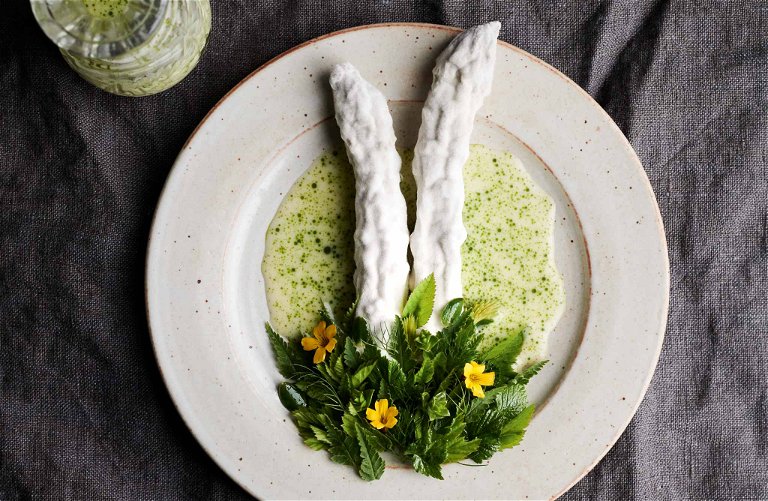
Exceptional artists like Michel Bras of Laguiole made their mark early on. Bras offered a vegetable menu as early as 1978, but with limited success. At the end of the 1980s, he invented the famous Gargouillou dish, one of the most poetic dishes of high cuisine, consisting only of flowers and vegetables, albeit partially sautéed with bacon. Or Alain Passard, who has been concentrating on vegetables (although not exclusively) for 20 years at the triple award-winning L'Arpège in Paris. Paul Ivic has done pioneering work with his vegetarian restaurant Tian in Vienna, for which he has held a star since 2014 and Pietro Leemann did the same in Milan with Joia in 1996.
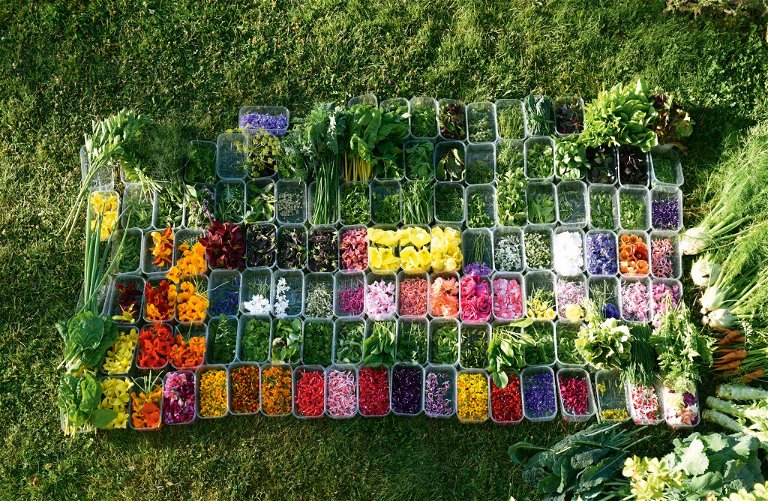
This boom has not come overnight, but gradually - like an idea that has ripened over time. Furthermore, our preoccupation with vegetables is advancing cooking culture and financially it is also worthwhile. Daniel Humm received initial clear feedback for his conversion to meatless cuisine at Eleven Madison Park - the restaurant was fully booked.

